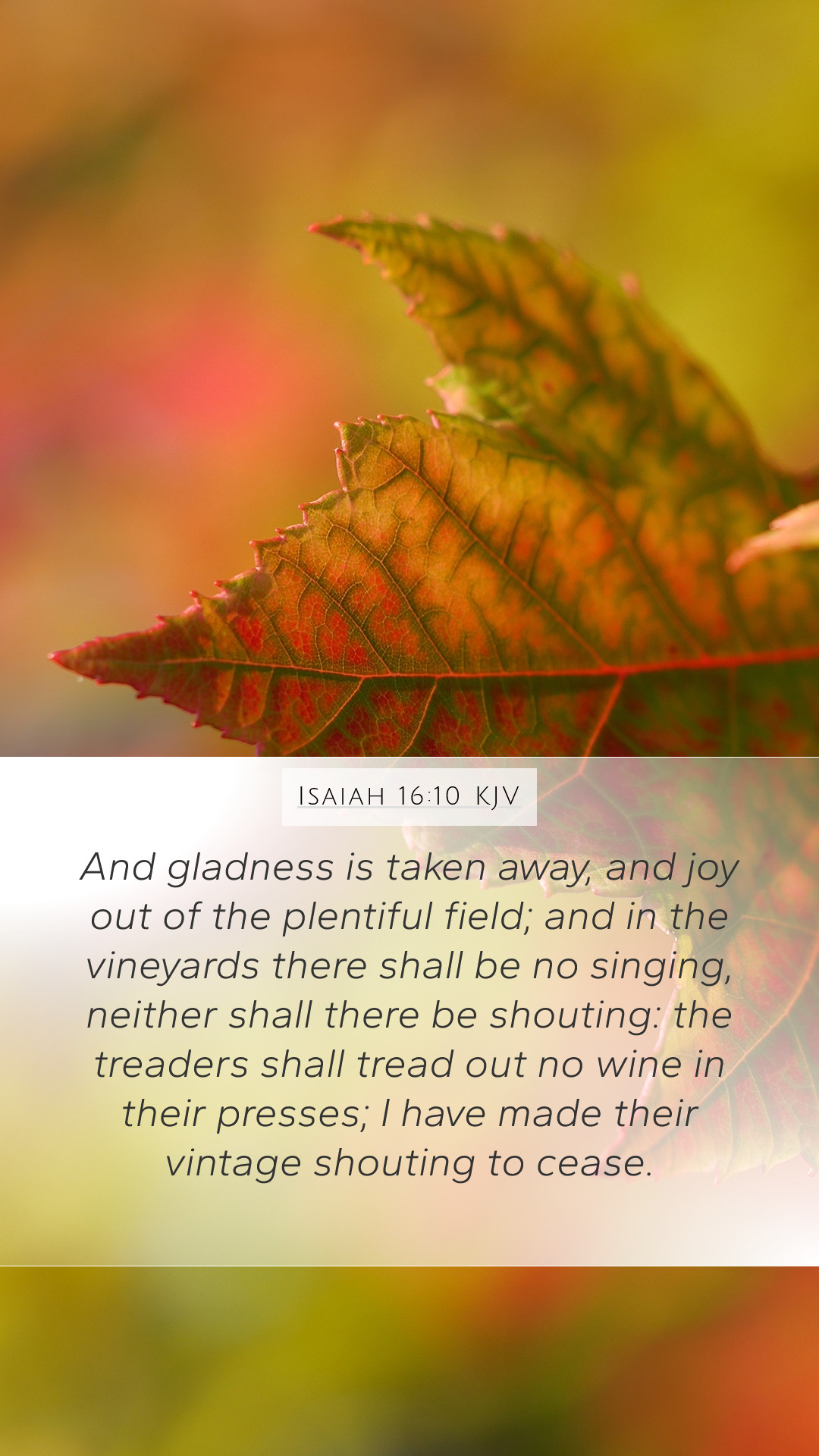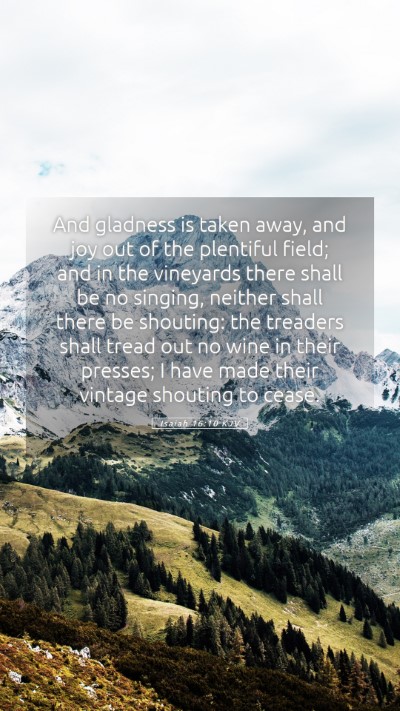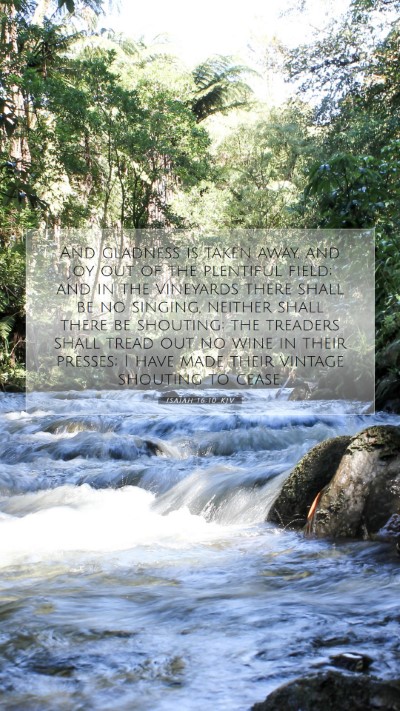Understanding Isaiah 16:10
Isaiah 16:10 states: “And gladness is taken away, and joy out of the plentiful field; and in the vineyards there shall be no singing, neither shall there be shouting: the treaders shall tread out no wine in their presses; I have made their vintage shouting to cease.” This verse reflects the profound sense of loss and mourning, highlighting the devastating impact of judgment and despair on the land of Moab.
Insights from Public Domain Commentaries
The interpretations of this verse from various public domain commentaries provide deeper understanding and clarifications on its meaning.
Matthew Henry’s Commentary
Matthew Henry notes that this verse signifies the cessation of joy and gladness, particularly in the context of Moab’s fields and vineyards. He emphasizes that the destruction brought upon Moab not only affects their physical harvests but also their heart and spirit. The vibrant celebrations associated with wine harvests are replaced with emptiness and sadness, portraying a clear message of divine judgment.
Albert Barnes’ Notes
Albert Barnes elaborates on the imagery of the vineyards and the joy of harvest once enjoyed by the people of Moab. He explains that the cessation of singing and shouting during the vintage represents a significant alteration in their societal and spiritual state. He connects this downfall to the broader theme of divine retribution and the consequences of turning away from God. The 'plentiful field' that was once a source of joy becomes a symbol of desolation.
Adam Clarke’s Commentary
Adam Clarke provides an historical context to this verse, indicating that the lamentation extends beyond just the physical loss of crops; it signifies a broader sense of hopelessness among the people. He notes that the absence of the joyful sounds in the vineyards and fields illustrates the spiritual barrenness that follows such divine displeasure. Clarke helps readers understand that the image of pressing grapes, which should be a joyful activity, now becomes a painful reminder of loss and regret.
Overall Significance of Isaiah 16:10
Isaiah 16:10 serves as a poignant reminder of how God’s judgments can affect all levels of life, drawing attention to societal, spiritual, and emotional dimensions. The verse encapsulates themes of loss and desolation due to divine actions, pointing out that the joy of the past can be lost when a people neglects their covenant with God.
Cross References
- Isaiah 24:7-11: Discusses the loss of joy in the world due to judgment.
- Jeremiah 48:33: Reflects on the mourning in Moab for her harvests.
- Lamentations 5:15: Speaks of joy and mirth ceasing in Jerusalem due to desolation.
Application to Daily Life
In how to apply this insight from Isaiah 16:10 to modern-day living, believers can reflect on the importance of a joyful and thankful heart. Recognizing that spiritual complacency can lead to loss and sorrow, this verse encourages individuals and communities to stay aligned with God’s purposes and to foster joy in their lives despite circumstances that may seek to steal it away.
Conclusion
Isaiah 16:10 serves as a powerful reminder of the consequences of straying from God and offers profound insights into the spiritual state of individuals and communities. By engaging with this verse through various commentaries and analyses, one can gain a fuller understanding of its implications and apply its lessons to promote spiritual well-being and resilience.


